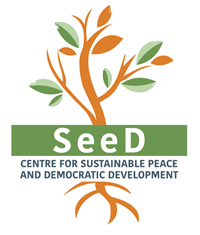Bosnia Herzegovina, General Population, 2020 Sample size: 3637
- 0
- 1
- 2
- 3
- 4
- 5
- 6
- 7
- 8
- 9
- 10
*The maps are not always to scale. They are illustrative in nature and may not reflect the exact boundaries of the depicted areas. This map does not imply the expression of any opinion concerning the legal status of any country, territory, city or area or its authorities, or concerning the delimitation of its frontiers or boundaries on the part of the SeeD or its partners.

